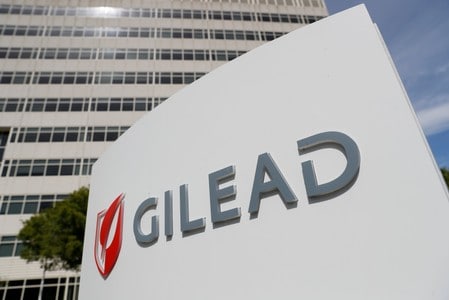By Maria Carolina Marcello and Gram Slattery
BRASILIA/SAO PAULO (Reuters) – A Brazilian court has stripped the patent protection of a Gilead Sciences Inc big-selling hepatitis C treatment in Brazil at the behest of a presidential candidate who pushed for the move, paving the way for cheaper generics.
The ruling by federal judge Rolando Valcir Spanholo invalidated the exclusivity patent for the drug sofosbuvir, sold under the brand name Sovaldi. Earlier in September, center-left presidential candidate Marina Silva and her running mate filed a request asking that the patent be overturned, saying such a move would significantly reduce costs for patients.
Sovaldi was the first of a new generation of drugs that are effectively a cure for the serious liver disease. But despite Sovaldi representing a major treatment advance, Gilead came under intense criticism for a price that initially came to $1,000 a pill in the United States. Other nations, such as India, and consumer groups have also challenged patents on the drug.
The Brazil move comes as local pharmaceutical manufacturers Farmanguinhos-Fiocruz, Blanver and Microbiologica Quimica e Farmaceutica fight for the right to produce a significantly cheaper, generic version of the drug, with the support of Silva, a candidate who has championed environmentalism, relatively orthodox economics and a robust social welfare net on the campaign trail.
According to local media, Farmanguinhos has proposed to Brazilian health officials producing a generic version of sofosbuvir for $8.50 per pill, about a quarter of the price charged by the U.S. biotech company in the South American country.
The court’s decision was first disclosed by Silva at a rally earlier on Monday in the northeastern city of Maceio.
A representative for Gilead did not return calls requesting comment.
The patent decision underscores how individual companies have been dragged into Brazil’s volatile presidential campaign, with right-wing front-runner Jair Bolsonaro criticizing certain investments by Chinese firms, and investors girding for more intervention in state-controlled companies should a leftist win.
Brazilians will go to the polls on Oct. 7 for the first round of the nation’s presidential election. If no candidate wins a majority of valid votes, as is likely, there will be a runoff on Oct. 28.
Right-wing Congressman Bolsonaro and leftist former Sao Paulo Mayor Fernando Haddad are seen as most likely to face off in the second round, in what polls indicate will be a tight race.
Gilead shares closed slightly higher at $75.62 on Nasdaq.
(Reporting by Maria Carolina Marcello and Gram Slattery; editing by Bill Berkrot)


